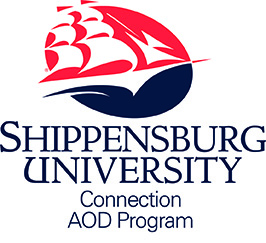The ARD/DUI Program is considered a pre-trial diversion program that is generally designed to handle cases involving first-time DUI offenders charged with minor crimes. Some examples may be DUI, underage drinking, possession of marijuana, and others. More information is available through Cumberland County's website.
The ARD Program is administered by the Cumberland County District Attorney's Office; however, supervision is handled by the Adult Probation and Parole Department.
In certain cases, the county will allow Shippensburg University students to complete certain components of the ARD requirements in the Connection AOD program. The primary benefit to Shippensburg University students is convenience of location. Please note: Certain program fees may apply which are based on the level of assessment necessary.
If you are a Shippensburg University student enrolled in an ARD program and would like to schedule an initial appointment, please email askaod@ship.edu or deanstu@ship.edu.
What may be required:
1. Attend initial Brief Alcohol Screening and/or Cannabis Screening and Intervention for College Student Assessment. BASICS/CASICS is designed to educate and assist students in examining their own drinking/cannabis behaviors.
2. Students may be required to attend assessment and evaluation screening with an off-campus certified addictions specialist. The practice of assessment entails the collection of information in order to identify, analyze, evaluate, and address the problems, issues, and circumstances specific to the student. Assessment is used as a basis for identifying problems, planning interventions, evaluating and/or diagnosing clients, and informing clients and stakeholders.
3. Attend Early Intervention Group Meeting (EIG). Early Intervention Groups (EIG) provide support and education for students involved in high-risk incidents or who could benefit from peer support in making positive changes in their lives. These groups meet for one hour a week for five weeks, are co-facilitated by Connections staff members. These are closed meetings and consist of no more than 10 students facing similar circumstance.
*These sanctions are subject to change depending on severity of each conduct and criminal case*
**It is important to note: Shippensburg University does not coordinate the ARD Program and has no say in acceptance into the ARD Program. If the County DA Office grants the ARD Program, and permits the completion of certain requirements by the Connection Program, the student will need to (and is expected) to initiate the scheduling of appointments, will need to fulfill all professional recommendations, and pay all associated fees.**


